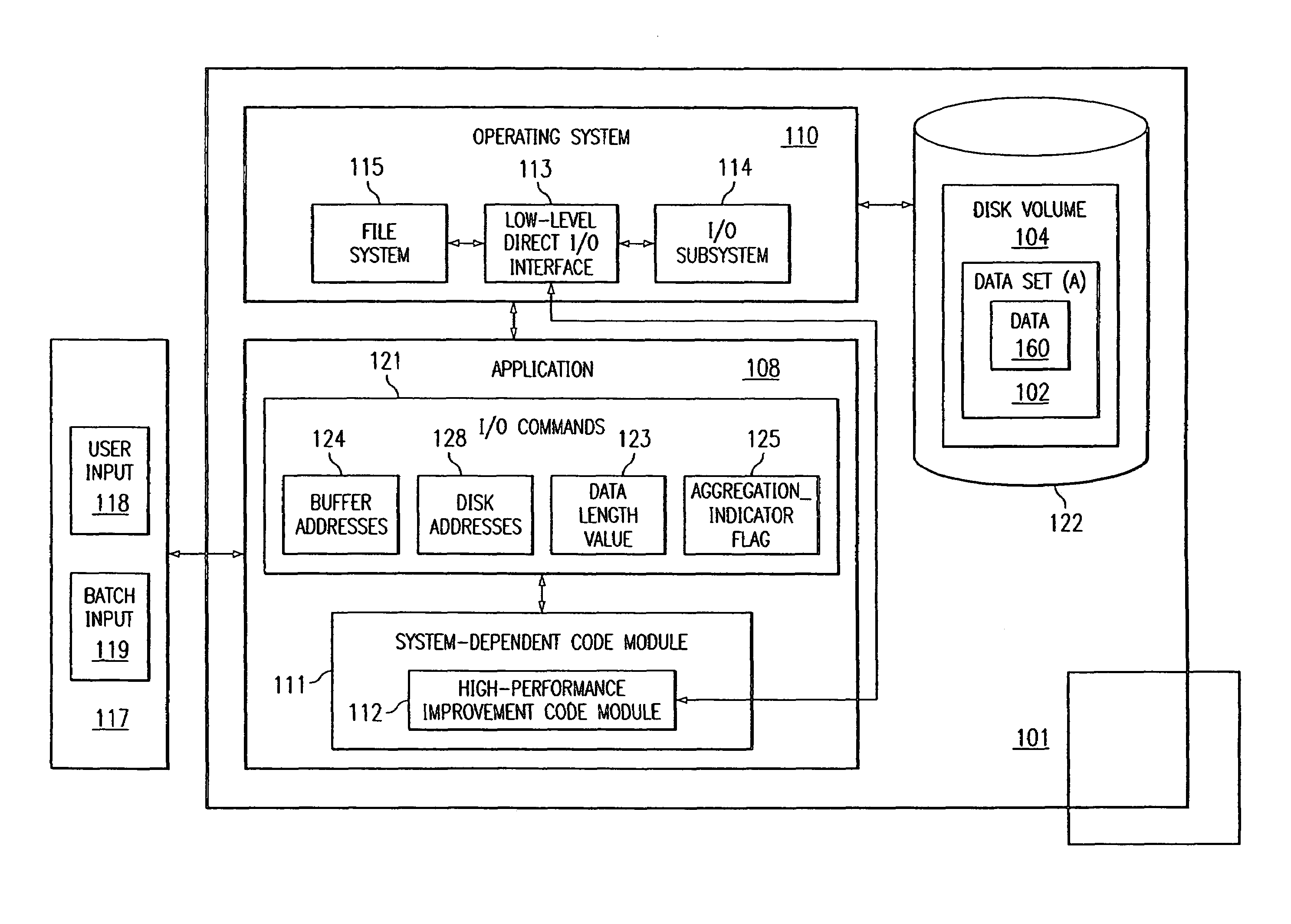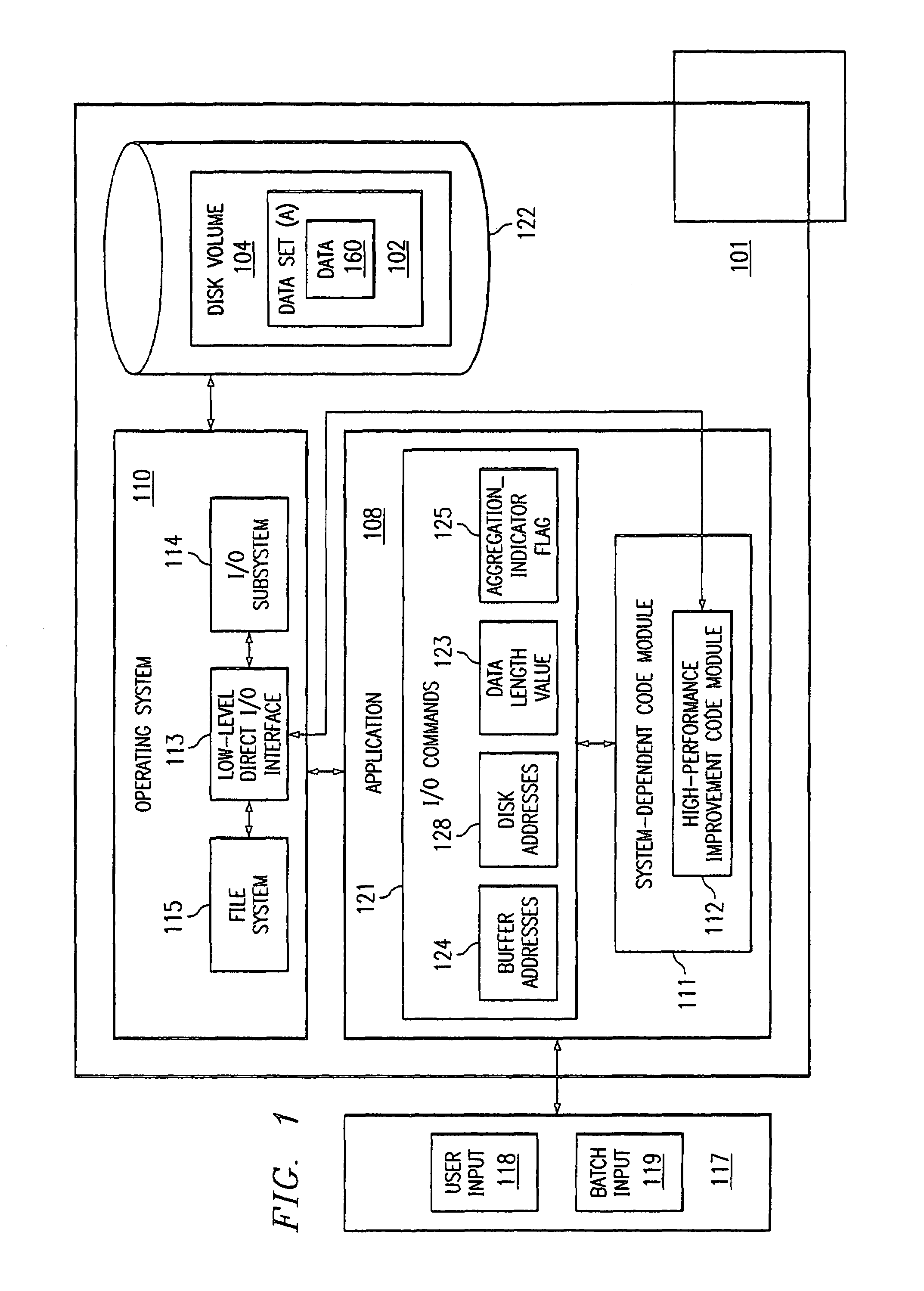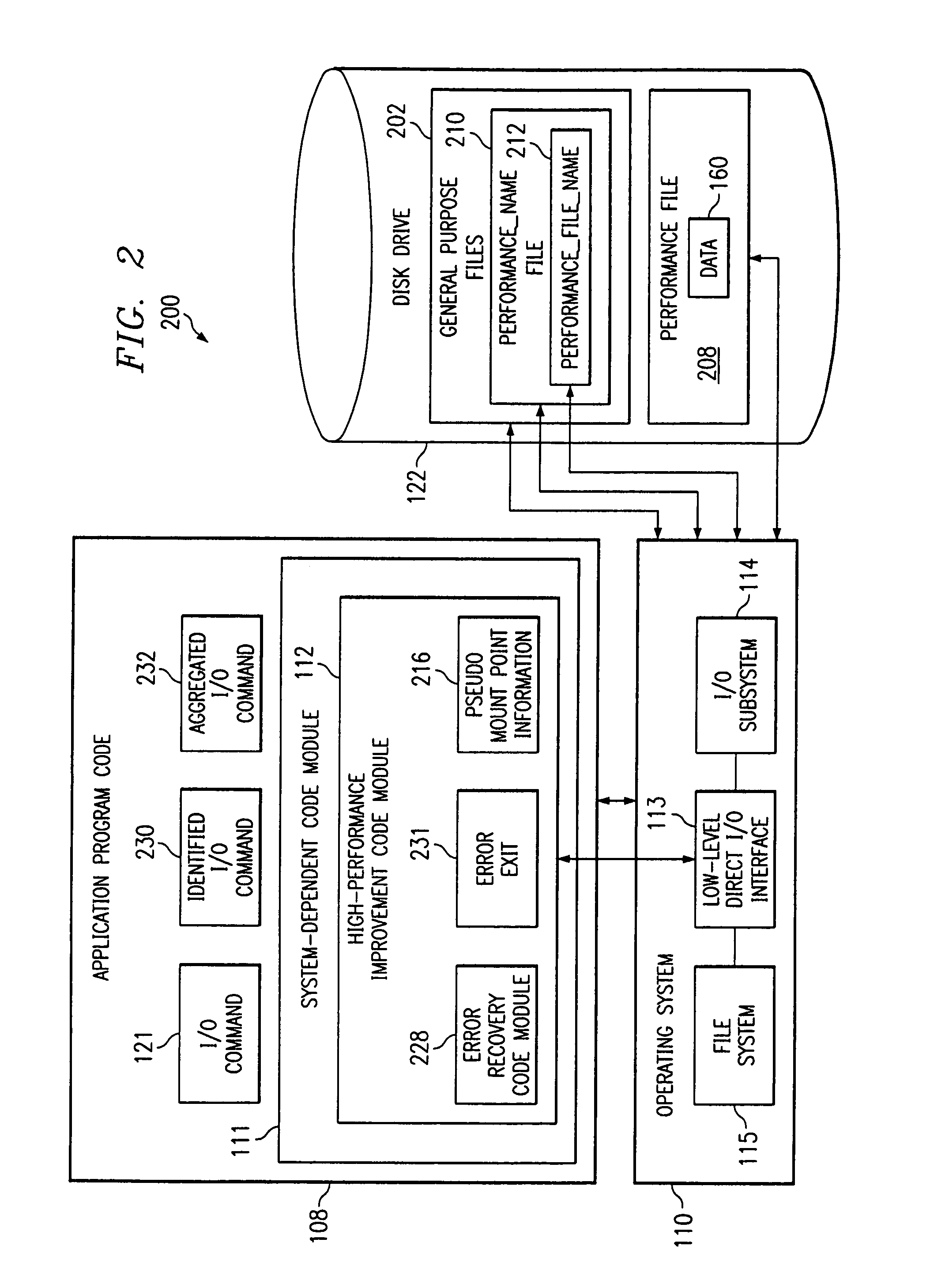[0013]The invention may be implemented as systems, methods, and computer products that improve the performance of computer-implemented I / O operations for complex applications, such as a database, that are ported to computer systems that are not tailored to support the high-performance services that may benefit applications. Complex applications, such as a database, often manage I / O access operations by a caching mechanism that is tailored to the needs of the application. For instance, the application I / O caching mechanism may operate-in conjunction with direct disk I / O operations that facilitate servicing random I / O requests. When porting an application to a target computer system that does not support certain I / O access APIs, I / O performance of the application may be limited. For instance, a computer system's high-level language APIs may not support certain I / O access features. The present invention may be implemented by introducing specialized I / O access features that are tailored to enhance I / O access performance for complex applications, such as a database.
[0014]For example, the present invention may be implemented so that support for queued disk I / O access commands is augmented with support for direct disk I / O access commands. The augmented support is contingent upon the availability in a computer system of synchronous, direct I / O access to disk volumes. This augmented support ensures that random I / O requests are handled optimally in addition to sequential I / O requests by an application. The present invention may be implemented on the IBM OS / 390 that supports
UNIX System Services with the HFS. More particularly, the present invention may augment facilities on the IBM OS / 390, such as the high-level language APIs, so that an application that is ported to the IBM OS / 390
UNIX System Services will operate more efficiently. OS / 390
UNIX provides support for APIs and an interactive shell interface. The OS / 390 APIs enable a user or program, such as a database, to request OS / 390 services and OS / 390 UNIX
System Services. The shell interface is an execution environment that services interactive requests from users and batch requests that are included in computer programs, such as a database.
[0015]Typically, complex applications that issue direct I / O requests may be associated with an I / O caching mechanism that is managed by the application. When porting the application for use with a general-purpose
file system that does not support direct I / O access, performance may be degraded. An implementation of the present invention introduces the use of direct I / O operations with applications ported for operation with general-purpose file systems that do not support direct I / O operations. The direct I / O operations used by the present invention and directed to disk volumes enable faster application I / O operations than queued I / O operations for certain complex
software applications. An implementation of the present invention uses direct I / O operations to support asynchronous I / O access to disk volumes instead of synchronous I / O access to disk volumes, and to optimally process random I / O requests. Therefore, performance of disk I / O access operations that service highly complex
software applications and that are associated with porting the application to a target computer system that does not support direct I / O operations, such as the OS / 390 UNIX HFS, is improved by the present invention over past solutions. It will be appreciated that the queued I / O access operations and the direct I / O access operations typically manipulate user data.
[0018]Therefore, the preferred embodiment of the present invention operates most efficiently in a computer system that supports chaining of multiple I / O requests into a single I / O request, such as the OS / 390. For example, chained I / O disk requests may be aggregated so that multiple non-contiguous blocks of four thousand ninety-six bytes of information are processed by a single, chained I / O disk request.
Execution time for characteristic test loads managed by the present invention is reduced by as much as 60 percent as compared to queued I / O operations on the OS / 390 UNIX HFS that does not support combining multiple direct asynchronous I / O requests.
[0024]While on most UNIX platforms general-purpose files support direct I / O access, the target computer system may lack such support. By creating an association between such general-purpose files and the performance files that support direct I / O access commands, database administrators may continue accessing some of the information about the general-purpose files while accessing a disk by direct disk I / O access. Therefore, this reduces the amount of application
program code that must be changed to accommodate the computer code introduced in the preferred embodiment of the present invention. This also maintains ease of use for the application users since the translation between the general-purpose files and the performance files is typically transparent to the user. For example by relying on the association between the general-purpose files and the performance files, the computer programs that rely on information in OS / 390 UNIX HFS files to determine characteristics of a file, such as whether the file exists, do not have to be altered to be made aware of the existence of the VSAM files.
[0025]An embodiment of the present invention improves the performance of computer-implemented I / O operations for complex applications, such as a database. More particularly, applications which use asynchronous, direct I / O commands that are ported to target computer systems which do not support such commands may be enhanced by the present invention to improve I / O performance. That is, the present invention may be implemented by augmenting general-purpose I / O access features with specialized I / O access operations that are tailored to enhance I / O access performance for complex applications, such as a database.
 Login to View More
Login to View More  Login to View More
Login to View More 


